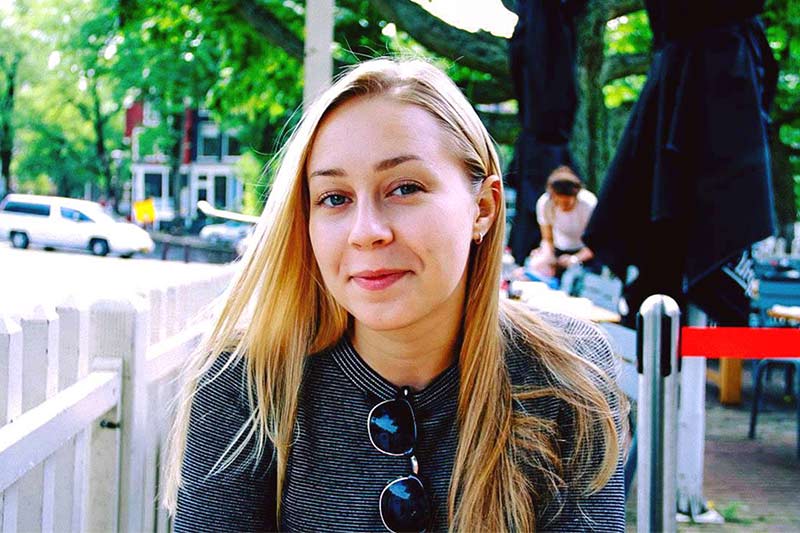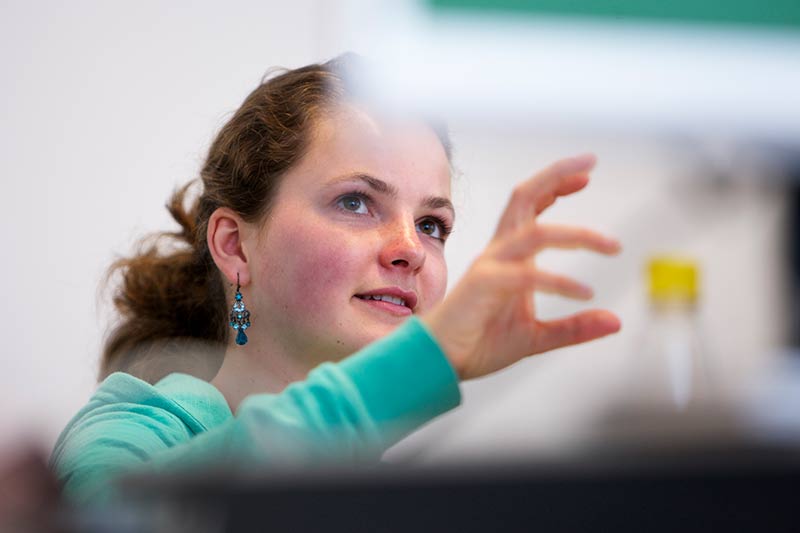Budgeting your studies
Learn more about how to manage your money as a student.

Money, money, money, …
Estimating your expenses can be challenging, especially if you’re coming from abroad, like Maia. This is how she calculates her costs:
Income per month: €1050 |
Spending per month: €955 |
€400 – job |
€165 – tuition |
€550 – parents |
€490 – rent |
€100 – savings |
€150 – food |
€100 – extra expenses |
|
€50 – books |
“Your monthly expenses in Maastricht all depend on your lifestyle and preferences. My parents don’t believe in free lunches; they only pay my rent, gym and phone bill. Fortunately, I’m blessed with an amazing grandmother. She occasionally makes a donation to the cause. When I started studying, I had savings from summer jobs to cover the tuition fees for my bachelor’s.”

“In Maastricht, I got a job in a bar during the first few weeks of my studies. Since the second year, I’ve had a student job at the university. If you really look for a nice student job in Maastricht, you will find one.”
“Studying is probably the most expensive, intense and time-consuming unpaid job you will ever have, but it’s also good fun,” says Nicolle. This is how she finances her studies at UM:

“In my first year of university, I was very dependent on my parents. They paid my tuition fee (€1900), my rent (€450) and all the extra expenditures like food, clothing, gym, books (around €300). This is a lot of money and many times I felt guilty not contributing at all.”
No more ‘ready-to-eat’
“Nonetheless, I found many ways to save a monthly sum for myself, for example, by cooking my own meals instead of buying the “ready-to-eat” products from the supermarket.
In the second year of university, you’ll be used to the city, the workload and all the new responsibilities. This gave me time for a job next to my studies and I was hired to join my faculty’s promo-team. My new job gave me the amazing feeling of being older than the rest for a change, and it had the added advantage of helping me earn more money!”
Good practice
“You’re required to have a health insurance and a Dutch bank account in order to work, but this won’t cost you much. Make sure your job is flexible, which makes it easier to combine with your studies. For me, the extra money I earned wasn’t enough to cover major expenses like rent or food for a month. But, in general, working has helped me understand the value of money and my expenditures.”
One more thing: don’t feel guilty if you’re not making money!
It is not your job; your job is to enjoy your studies, have a good time and stay confident that after your graduation you will find a job that pays well.
Appreciate all the possibilities that you have by studying at Maastricht University and make sure you stay informed about discounts and free activities and food.”
More about finances: loans and grants
More about housing

